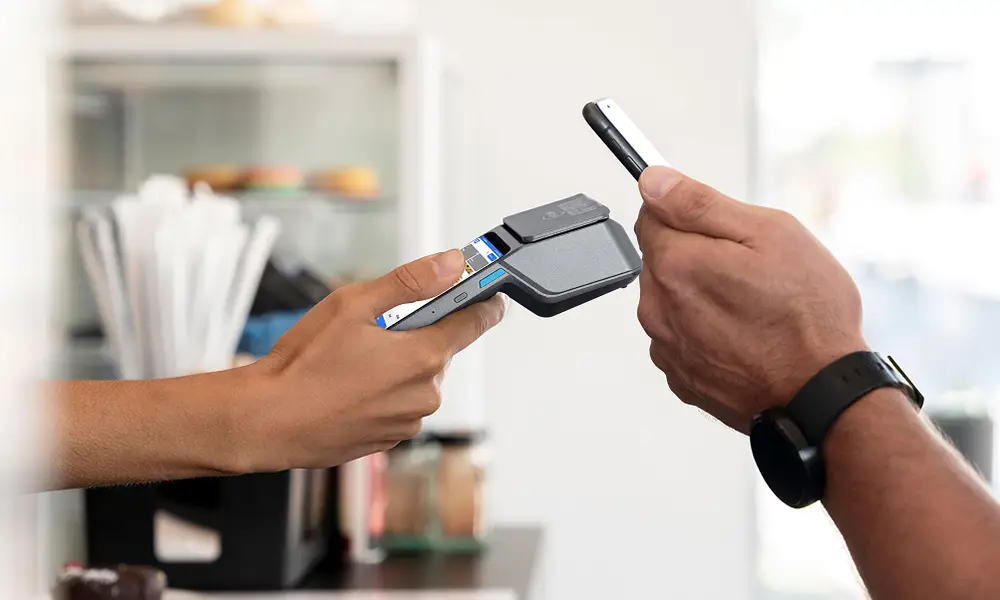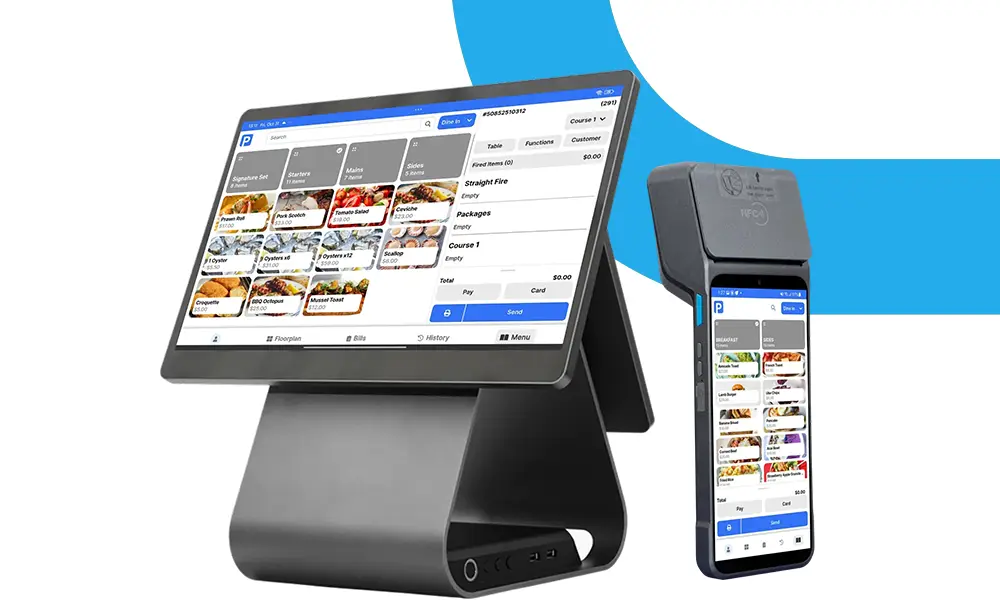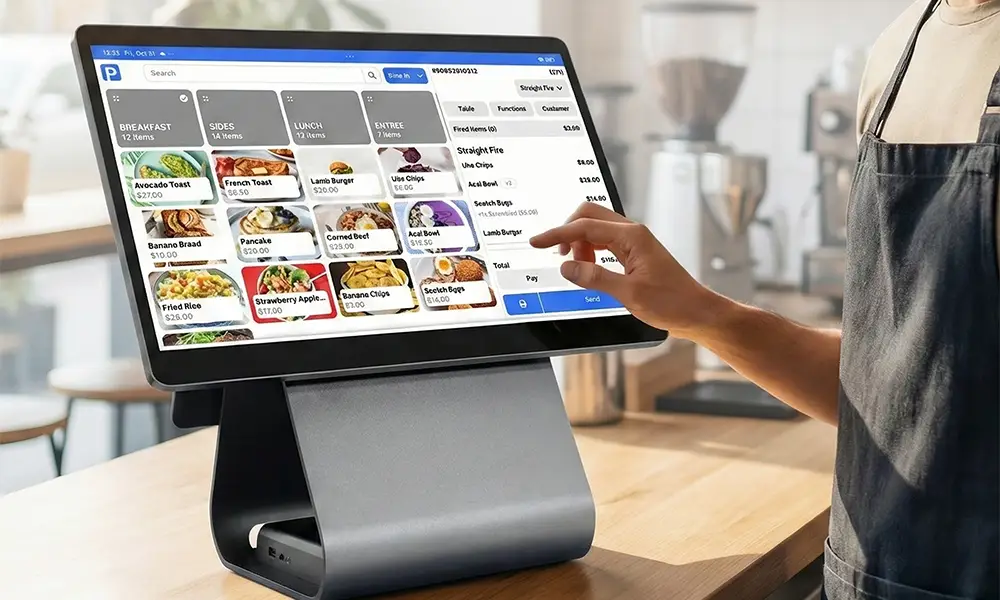Confused about which POS operating system is right for your business?
Choosing a POS system for your business might seem overwhelming, especially with so many operating systems on the market.
Are you struggling to decide between Android, iOS, or maybe even a proprietary POS OS? Each operating system comes with its own set of benefits, trade-offs, and compatibility issues, so understanding what makes them unique is essential.
In this guide, we’ll take a look at the leading POS operating systems, what they offer, and how to choose the one that’ll best suit your business. Let’s make sure you’re set up with the right tech to serve customers efficiently and keep operations running smoothly.
Why Does the POS Operating System Matter?
The operating system (OS) of a POS system is the backbone of its functionality. A POS OS determines not only the software applications available but also the compatibility with hardware, security features, and the overall user experience.
Here’s why choosing the right POS operating system is critical:
- Security: Different OS options have varying security standards. Choosing a secure POS OS can protect sensitive customer and transaction data.
- User-Friendliness: An intuitive OS makes it easier for staff to learn and operate the POS, reducing training time and improving customer service.
- Customisation: Some POS systems allow for extensive customisation, while others are more rigid. Choose an OS that matches your business needs.
- Integration with Other Systems: Your POS might need to work with accounting, CRM, or inventory management systems. The OS determines which integrations are possible.
Selecting a POS operating system that matches your requirements can significantly improve workflow, security, and overall business efficiency.
Types of POS Operating Systems
Here are some of the most popular POS operating systems and what each offers. Understanding these options will help you make an informed decision.
1. Android POS Operating System
Android POS systems are popular for their flexibility and affordability. Built on the same OS as most smartphones, Android POS systems are highly customisable and compatible with a range of apps and add-ons.
Pros:
- Flexible and Customisable: Android POS systems offer endless possibilities for customisation.
- Affordable Hardware Options: Compatible with a wide variety of hardware, making it cost-effective.
- Integration with Google Services: Access Google’s suite of business tools and applications.
- Easy to Scale: Ideal for businesses looking to add or change features as they grow.
Cons:
- Security Risks: As an open-source OS, Android can be more vulnerable to security risks without proper management.
- Varied Quality: Since Android POS systems are available from numerous providers, quality can vary.
2. iOS POS Operating System
The iOS POS OS is known for its sleek design, user-friendly interface, and robust security features. Commonly used in high-end retail and hospitality settings, iOS POS systems are reliable but tend to come with higher hardware costs.
Pros:
- High Security: iOS has robust security features, making it ideal for businesses handling sensitive customer data.
- User-Friendly Interface: Apple’s intuitive design reduces training time for staff.
- Seamless Updates: Regular OS updates ensure security and compatibility with new apps.
- Consistent Performance: Apple’s control over hardware and software means a smoother, more reliable experience.
Cons:
- Higher Cost: iOS POS systems typically require Apple hardware, which is pricier.
- Limited Customisation: Apple’s closed ecosystem offers fewer customisation options than Android.
3. Windows POS Operating System
Windows-based POS systems are highly versatile and powerful, often used in retail, hospitality, and large enterprises that need extensive functionality and integration with other business software.
Pros:
- Strong Integration: Compatible with Microsoft Office, Excel, and other enterprise tools.
- Highly Customisable: Windows POS allows for extensive customisation to meet specific business needs.
- Wide Range of Hardware Options: Available on everything from tablets to full-size terminals.
- Ideal for Multi-Location Operations: Suitable for larger setups needing advanced features.
Cons:
- Security Concerns: Windows can be more susceptible to malware and security breaches.
- Complex Setup: Windows POS systems may require more IT support and training.
4. Linux POS Operating System
Linux POS systems are often used by businesses that require customisation and open-source flexibility. While not as common in mainstream retail, Linux POS systems are reliable and highly configurable.
Pros:
- Open-Source Flexibility: Customise the OS to fit your exact requirements.
- Cost-Effective: Often lower cost compared to other POS operating systems.
- Highly Secure: Linux is known for strong security due to its open-source nature.
- Reliability: Suitable for heavy-duty tasks, making it popular in larger businesses.
Cons:
- Complexity: Requires more technical expertise to set up and maintain.
- Limited App Support: Fewer POS-specific apps available compared to Android and iOS.
How to Choose the Right POS Operating System for Your Business
Choosing the right POS OS means evaluating your business’s unique needs and operational goals. Here’s a step-by-step guide to help you make the right choice:
1. Assess Your Business Size and Industry
The ideal POS OS varies depending on the type of business you’re running. Retail stores may find iOS or Android more suitable for simple transactions, while larger businesses may benefit from Windows or Linux for more complex needs.
2. Consider Your Budget
Your budget will influence which POS OS is practical. Android and Linux options are generally more cost-effective, while iOS often comes with higher hardware costs due to Apple’s proprietary ecosystem.
3. Evaluate Security Needs
For businesses handling high volumes of customer data, such as credit card information, security should be a top priority. iOS and Linux are known for robust security, while Android can be secure if managed properly.
4. Determine Customisation Requirements
If your business requires extensive customisation, such as unique features or specialised integrations, Android or Linux might be the better choice. For businesses looking for a plug-and-play solution, iOS offers a user-friendly and consistent experience.
5. Check for Integration Compatibility
Ensure that the POS OS you choose can integrate with your existing software, such as accounting tools, inventory management systems, or CRM platforms. Windows offers extensive integration options, while iOS and Android are more selective.
6. Think About Future Growth
If you plan on expanding your business, consider an OS that’s scalable. Android is highly flexible, allowing you to add features and hardware as you grow. Windows is also a solid choice for businesses anticipating growth.
Ready to Find the Perfect POS OS for Your Business?
Selecting the right POS operating system isn’t just a technical choice—it’s a strategic decision that affects daily operations, customer satisfaction, and even long-term growth. By choosing the POS OS that fits your needs, you’ll enhance your business’s efficiency and improve service quality.
If you’re ready to explore your options, book a demo with Payflo to find out which POS OS can best support your goals and keep your business operating smoothly.
FAQs about POS Operating Systems
1. What’s the most secure POS operating system?
iOS and Linux are known for strong security. iOS offers robust data protection within Apple’s ecosystem, while Linux is favoured by businesses needing custom, open-source security solutions.
2. Can I use any POS hardware with my chosen OS?
Not always. iOS POS systems typically require Apple devices, while Android, Windows, and Linux offer more flexible hardware options. It’s best to check compatibility with your provider.
3. Are Android POS systems less secure than iOS?
Android can be secure if managed properly, though it’s generally more vulnerable than iOS. Regular updates, security protocols, and choosing reputable software providers enhance Android’s security.
4. What POS OS is best for small businesses?
Android and iOS POS systems are often the most suitable for small businesses due to their simplicity, affordability, and ease of use.
5. Can a POS OS handle multi-location management?
Yes, most advanced POS OS options like Windows and Android support multi-location management, making it easy to manage inventory, sales, and staff across multiple locations.


%201.svg)
%201.svg)





.png)
.png)
